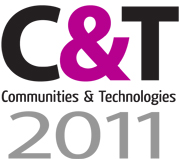Paper and Print Reduction Strategies through Persuasive Technology (2009 – 2010)
This research seeks to engender among Queensland University of Technology (QUT) staff a feeling that excessive printing has a tangible and negative effect on their workplace and local environment. Using software to analyse the logs of select QUT printers or printer groups, determining and grading the print usage of staff from suitable offices. Different grades result in the circulation of software generated emails – purportedly from the local printer or printer group – playfully ‘complaining’ about pages printed using disjunctive and injunctive information. Staff are reminded of what their current usage equates to in different metrics, and encouraged to conserve paper for a tangible reward. Current planning envisages locally native saplings as rewards, temporarily situating them in the office reaching the goal, and later planted in a campus green space for staff to visit.
As an example, if a given staff group performs well, reducing the amount printed, reaching a grading threshold, an email (or similarly accepted communication medium) might be sent – ostensibly from the local printer – expressing something to the effect of “Hey there, it’s your printer here, Gerald – the beige MFC down the hallway. Look I’m really impressed with your efforts; I’ve only printed 50 pages in the last two days. That’s excellent! Compared to last week, you’ve saved over 160 litres of water, 12% of a tree and 10.8 kg of CO2, not to mention over half the print jobs were printed double sided.” Similarly injunctive information will accompany this descriptive information to attempt to curb the rebound effect.
Current planning is to firstly assess, the number of staff printing to a particular printer or printer group and subsequently examine the amount of paper consumed during any given day. Obtaining suitable baseline data to provide meaningful grading for each staff group, may necessitate software deployment in a data gathering mode for a period of weeks, prior to general announcement. In addition to these direct software development efforts the addition of novel ambient devices placed strategically around the office environment is being explored.
Team
Richard Medland (PhD Candidate)
Assoc. Prof. Marcus Foth (Principal Supervisor)


